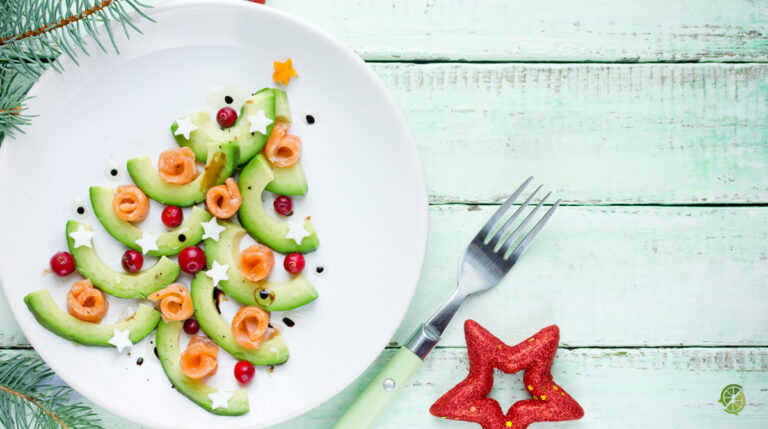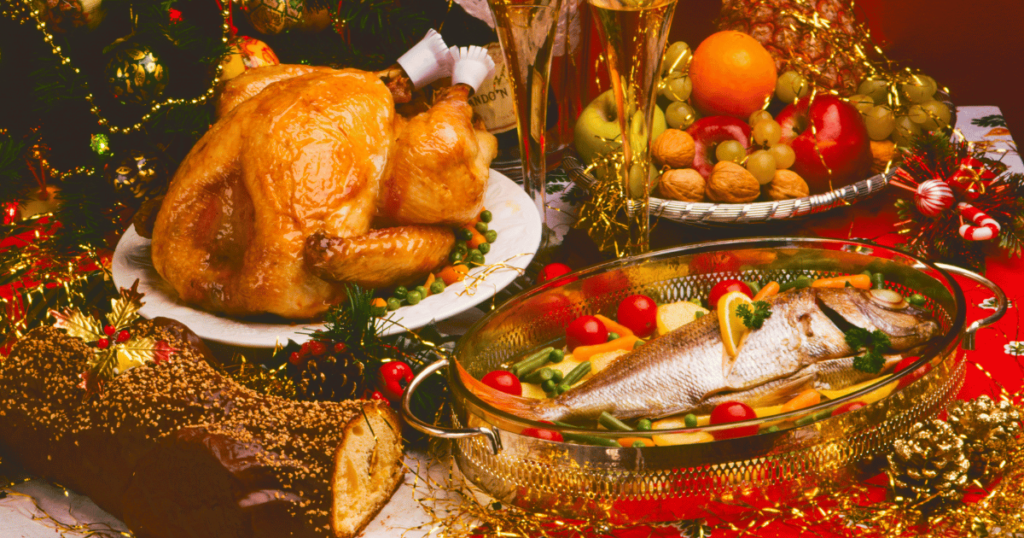
Eating and drinking too much while doing too little seems inevitable over Christmas.
Worrying about your weight is the last thing you want to do in the festive season but there are a few very small changes you can make during the lead-up to Christmas, on the day itself and afterwards, that can make a real difference.
During the Lead Up to Christmas
Denying yourself Christmas-related treats is only going to make the weeks before the big day miserable, so don’t do that. However, if you don’t want to pile weight on during December, then you will need to restrict how much you have. An obvious but very true fact is that if you don’t have treats in the house, you are far less likely to eat them. If eating or drinking something naughty involves leaving the house to get it, it is much easier to resist. Even though Christmas treats like mince pies are more expensive when bought singularly in cafés and coffee shops, it is worth it as buying a pack of them will just result in you eating six when you really only wanted one.
Restricting how often you indulge is another good way of not overdoing it. Have a special ‘treat day’ when you pick one thing to have to treat yourself. This way, it will give you something to look forward to and a way of talking yourself out of having these things every day.
Alcohol intake also increases the closer Christmas gets, so this is something else which has to be regulated if you do not want to put on weight. A large glass of wine contains around 195 calories which is roughly the same as a slice of sponge cake. A pint of beer contains around 197 calories which is similar to a large slice of pizza. Fortunately, similar techniques to those above work with alcohol too. Make a rule that you only drink when you are out or with other people. Try to avoid the temptation to drink at home with or after meals. Have it as a treat, and that way, you do not have to feel guilty about having too much at parties.
If you are not someone who exercises regularly, then it is worthwhile taking up a form of exercise before Christmas rather than after so you are in the habit of doing it by the time you start putting on the extra Christmas pounds. Some gyms will also offer special deals, like waiving the joining fee if you join before Christmas, as this will be a quiet time for them.
Christmas Day
Although there are low-calorie options when it comes to Christmas dinner, the best advice is to just not eat too much. There is no rule that says you have to eat until you feel a bit sick on Christmas Day but in this country, we tend to behave like there is. You can save money as well as calories by not buying in more than you need and trying to eat normally up until Christmas dinner itself. If the weather is reasonable, then there is a great benefit in going for a walk after dinner. Not only will this begin to burn off the calories you have consumed, but it will also get you out of the house and away from snacks and booze.
After Christmas
Again, not buying in too much food for Christmas Day will be a huge benefit from Boxing Day onwards as, ideally, you need to get back to eating normally as quickly as possible. If you do have leftovers, freeze as much of it as possible so you can eat it gradually over the next few weeks so you don’t feel the need to eat extra to use it up quickly before it goes off.
Most people put on a few extra pounds over Christmas, and a good way to lose the weight afterwards is to use a mobile phone app to record exactly what you are eating and how much exercise you are doing. The best of these apps will tell you how much you should be consuming to achieve your target weight. Being strict about adhering to this should see you lose the extra Christmas pounds almost as quickly as you put them on.



On Christmas, I try not to go overboard with dinner. I mean, it’s tough with all that delicious food, but pacing myself helps. And a post-dinner walk is a game-changer.